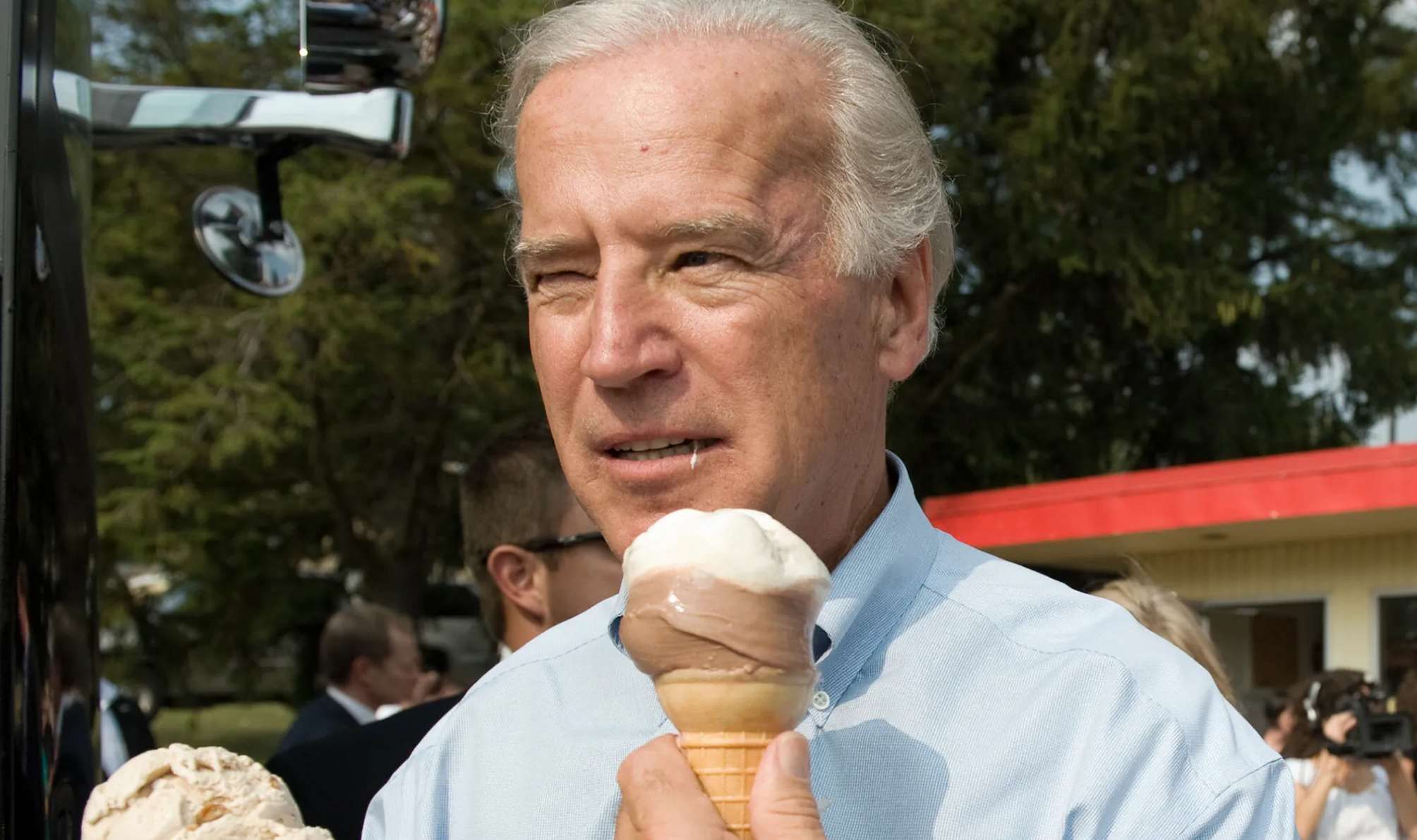Joe Biden Doesn’t Act Old Enough
Politics
Biden’s trend-chasing is more objectionable than his conspicuous senescence.

Joe Biden is really old.
For conservatives, this is practically an article of faith, and for liberals, it is a reality glumly accepted. Even Biden himself has apparently been informed that he had better start joking about the infirmity he projects daily through his public utterances, affect, and gait. “I know it may not look like it,” he quipped during the State of the Union, “but I’ve been around a while.”
What if Biden’s problem, though, is not that he acts too old, but that he doesn’t act old enough? He may look and sound like a senior citizen, but in his acquiescence to the pieties of the present-day far-left iteration of the Democratic Party, he is hopelessly in tune with his times.
If Biden were an authentic old man, he would crankily denounce the overlap of Easter Sunday with the Transgender Day of Visibility (as he almost did in the dust-up that followed those days’ most unfortunate co-occurrence).
If Biden were an authentic old man, he would stubbornly insist that—his support for abortion notwithstanding—he personally agrees with his church’s position that life begins at conception (as he did in his 2012 vice-presidential debate with Paul Ryan).
And if Biden were an authentic old man, he would unequivocally, unambiguously, and unflinchingly tell the current batch of anti-Israel campus crazies to scram—to get out of his party and off his lawn.
Of course, Biden’s lifelong commitment to liberal nonsense would still make him an unacceptable choice to any serious, self-respecting conservative, but if he was as crusty, curmudgeonly, and contrarian as is sometimes alleged, he might, at least, serve as a bulwark against the worst and wokest views of those around him.
Now, being old does not automatically confer common sense, but it doesn’t hurt. Here, I speak from some personal experience: In one of the oddities of my own biography, I am a Millennial whose parents were members of the Silent Generation.
My father was born in 1937 and my mother was born in 1944—about a month after D-Day. My parents were married in 1966, but did not have their first child until 1983, when I was born. It made for a sometimes-unusual upbringing. My father had gray hair for as long as I can remember—there were a couple of occasions when he was mistaken for my grandfather—and, though they were blessed with good health, I came to worry over them as they grew older. When they were in their 50s and 60s, I was in my teens and 20s. Since they are both now gone, it’s not lost on me that, if I had had younger parents, I might still have parents today.
Yet, on balance, I am grateful for having grown up with parents who were older than those of my contemporaries. To start with, it made their own lives seem enticing and mysterious. Their early years were pieced together by listening to their occasional reminiscences and poring over their scrapbooks, which showed people I loved but, in some sense, hardly knew: photos of my parents living in Colorado Springs, where my father was stationed as an Air Force officer; or of my mother dressed to the nines for her job as a bank teller after they relocated to my father’s native Ohio.
They came from a world that was remote from my own. My father remembered hearing as a boy the theme song of Ohio’s Senator Robert A. Taft during his presidential campaigns of 1948 and 1952, “I’m Looking Over a Four-Leaf Clover”; my mother remembered wanting as a girl to emulate Grace Kelly and Doris Day. On one of their first dates, they went to see The Sound of Music; my mother remembered going to Ohio State football games where everybody got dressed up—instead of unisex athletic wear, the men wore sport jackets, and the women, fur coats.
My parents’ moral codes were formed in the 1950s—and, for the most part, they never left the ’50s. My mother inveighed against the contemporary trend of cohabitation, or, as she put it, “shacking up”; my father was a near-absolutist in his opposition to divorce. Both were just old enough to be utterly alienated from the counterculture. My mother couldn’t stand the hippies and told me she voted for Nixon in 1972; she regarded the legalization of marijuana as a cultural calamity.
Subscribe Today
Get daily emails in your inbox
Because I grew up in their household, these views were not strange or even novel to me. In fact, I came to share them. By the same token, my parents’ ages—and my comfort level with their times—inoculated me to the passing trends of my own time. Through my mother and father, I knew there had been a world without wokeness, cancel culture, or smartphones. Even my consciousness of my parents’ ages—the anxiety I had about their well-being—was salutary. Time is all the more precious when you are aware that it is limited.
Back to Biden: If the forty-sixth president more fully reflected the instincts and attitudes of a man born in 1942, he might make for an intriguing retro-style candidate—just as Bob Dole did in 1996, when he became the last World War II veteran to aspire to the presidency. Instead, like an old man who pretends to like Taylor Swift rather than his beloved swing music in order to appear hip to his grandkids, Biden assents to the loony radicalism of the moment in order to stay current. I sometimes think that a sizable percentage of the voting public, skeptical of both major party nominees, is just waiting for Biden to go full-on Grumpy Old Men on the far left—but, alas, it doesn’t seem likely to happen. Biden is something worse than an old-timer: He’s a follower.
As for me, I am glad to have had parents who acted their ages. I only wish Joe Biden acted his.

